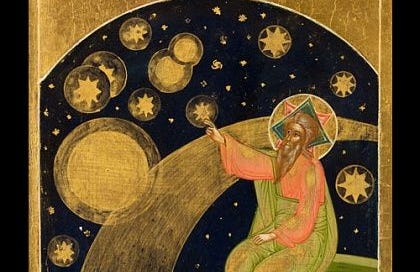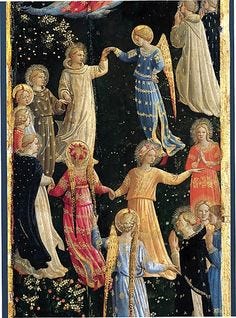A Brief Review of “The Riddles of Philosophy” by Rudolf Steiner
One must have sympathy for those who suffer from our enormous contemporary social pressures. An individual who, upon hearing mysterious things about this "Rudolf Steiner" might look him up online, see a phrase such as "Old Moon," look nervously over the shoulder to be sure no one witnessed this rueful departure from conventional narratives, and quickly clear their search history, close the browser, and swear to offend no more the gods of Wikipedia-acceptability. It is frightening to stray from the pack; and such a pack!
Robert Hammerling, 19th c. Austrian poet, has a statement which is quoted twice in The Riddles of Philosophy. It reads: "Certain stimuli produce the odor within our organ of smell. The rose, therefore, has no fragrance if nobody smells it...If this, dear reader, does not seem plausible to you, if your mind stirs like a shy horse when it is confronted with this fact, do not bother to read another line; leave this book and all others that deal with philosophical things unread, for you lack the ability that is necessary for this purpose, that is, to apprehend a fact without bias and to adhere to it in your thoughts."
Steiner only partially approves of this strong statement out of sympathy for the beleaguered and confused modern; however, he is ruthless with himself in following the sentiment. Here we see Steiner as the extraordinarily learned and balanced mind who curated the work of Goethe and studied philosophy & science for decades. The book is also a valuable description of the shadowy attempt to find a synthesis through the battles of German idealism, British empiricism, and the cultural dominance of the natural sciences. There is none of the Anthroposophic framework or terms of Steiner's lectures until the conclusion. Each step is valuable insofar as it highlights our understanding of the ever-spiraling conflicts of post-medieval thought.
Here one may see Steiner as a culmination of a struggle between Thought and Ego, Spirit and Sense - and can see the many people who contributed to the development of his worldview. This is not a checkmark history of philosophy based solely on the Big Names like Kant - Goethe - Hegel - Schopenhauer; Steiner focuses on the important turning points they stake out, but spends just as much time, if not more, on dozens of names unknown (to me) who did critical work clarifying the points of contention. Franz Brentano, Thomas Reid, Kirchoff, Du Bois-Reymond, Wilhelm Dilthey, Troxler, W.H. Preuss, F. Lange - most of these were unknown or mere names to me, whereas in Riddles they become the vital filling in of a picture that would otherwise be an incomplete sketch of 18th & 19th century philosophy. The details matter.
One thing these summaries bring to mind is just how much Man is willfully reduced by most currents of the 18th & 19th c. philosophers, even when they are in full contradiction to each other. One might think here is the defender of Reason (Man?) and here the defender of Mechanics & Dynamics (Machines? Or Biology?). Yet too often people who represent opposite poles partake in a common coldness, a preference for Ideals/Data, but never Man. In the quest to exalt Thought or the natural sciences, homo sapiens become a pale shadow serving some other object. Hume and Hegel differ immensely, but one keeps seeing the senses or ideals triumphing over the soul of Man. No wonder we have built around us a world increasingly dehumanized.
When you read Catholic philosophy from the same time, you find a much more holistic understanding of Man. However much criticism neo-Thomists or personalists receive, we find the Christian Orthodox religions have found a way of holding fast to a created creature struggling with responsibility and love. Not an automaton; not a self-portrait in a void. Only anthroposophy holds a candle to this full understanding of the Person, and it remains my dearest wish that the self-inflicted knee-capping of many Christians before the golems of the Market-Machine could be healed by an understanding of nature & spirit which does not hesitate to see Steiner as friend not foe.*
Several Questions
Here is a sketch of the trajectory of creative social self-understanding has moved in over the past 5,000 years:
The Mythopoeic Consciousness ----> The Epic ----> The Novel ----> The Moving Picture ----> The Post
There's a process of condensation here, and much is lost from what is sloughed off that we can see would be truly Good to recover. But how? Is it possible and/or desirable to condense yet further than the social media post? Are we at a pivot point in which return is possible, or will there be yet further stripping away? Is the pivot (metanoia?) actually possible at every step - not in this horizontal direction, but vertical, ie the turn is Prayer?
In other words: do we focus on 1) returning but re-hallowing as we go, 2) a further condensing process or 3) in this fragmentation are we asked, as individuals, to not return but to seek out The Communion of the Saints?
I would like so very much to hear your thoughts.
*This deserves more than a footnote but there are time constraints. It goes without saying there are severe, unavoidable, fundamental disagreements between Anthroposophic Christianity** and Orthodox Christian doctrine. I do not believe it is Orthodox Christian doctrine which needs to change; however, I do believe it could renew its understanding of the truths it stewards through a full and open encounter with Anthroposophy. That almost all Orthodox Christian Churches are in crisis regarding their self-understanding of authority, tradition, and modernism cannot be doubted. Truth is always truth; however, our definitions may suffer distortion after centuries of heavy use by mightily different world frameworks, and require polishing to renew the gift of reflecting reality.
**Footnote to Footnote: It is imperative to not conflate Anthroposophy Christianity with contemporary neo-pagan yuppie Waldorf schools, or the doctrines of Theosophy, Bailey, Perennialism, or manic occultisms of the late 19th and early 20th centuries. Many have too quickly associated these contradicting movements, whose one common feature is a rejection of Christ, with the man who stopped everything everyday at 3 pm to pray The Lord's Prayer and was utterly convinced Transubstantiation took place on the Altar during the Mass.





